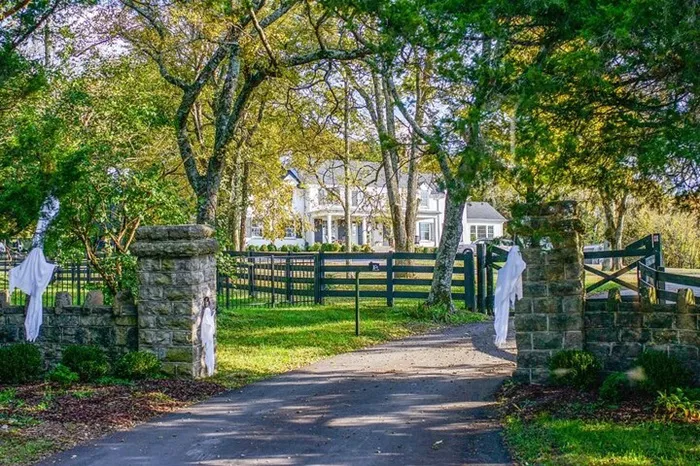Nashville’s thriving literary community stands in contrast to the city’s lack of a poet laureate. Neighboring cities like Hendersonville and Murfreesboro have appointed laureates, and Tennessee has a state poet laureate, yet Nashville has not followed suit. Despite this, the city is quickly becoming a hub for writers, alongside its fame as a music destination.
Nashville hosts the popular Southern Festival of Books annually, and The Porch, a nonprofit offering year-round writing classes, has attracted prominent guests like U.S. poet laureate Ada Limón. Recently, Nashville also appointed a youth poet laureate, but it has yet to establish a laureate for older poets.
The absence of a poet laureate feels like a missed opportunity for a city rich in talent, events, and bookstores.
Major Jackson, a professor at Vanderbilt University and author of six poetry books, argues that a poet laureate plays a vital role in the community. They help capture the essence of local life in poetry and show young people the “social function of literature” in daily life. A poet laureate not only advocates for poetry but also “gives voice to the will, the desires, the observations, the fears of the people.”
Jackson also notes Nashville’s complex history with poetry. Robert Penn Warren, a Vanderbilt graduate, was one of the first U.S. poet laureates in 1944. He was part of influential literary groups like The Fugitives and The Southern Agrarians in the 1920s and ’30s. These groups were known for their conservative Southern traditionalism but also evolved in differing ways—Warren became an advocate for integration, while fellow Fugitive Donald Davidson remained a staunch segregationist.
Today, Nashville’s literary scene is more diverse, with poetry slams, literary pop-ups, and even multimedia productions like the Nashville Ballet’s adaptation of Caroline Randall Williams’ book Lucy Negro, Redux.
Local poet Ciona Rouse, who moved to Nashville 22 years ago, says poets are creating their own communities in the city. She believes a poet laureate should focus on creating spaces for people to engage with poetry. Rouse is currently working on a new literary project: a poetry-centric bookstore and bourbon bar called Bard’s Towne, which she plans to open in 2025. She has also hosted recent pop-up reading events at Nelson’s Green Brier Distillery and the Frist Art Museum.
Chet Weise, editor-in-chief of Third Man Books, draws from his experience in the DIY punk rock scene to build community. In 2012, he started a showcase called Poetry Sucks, which led to the creation of a poetry anthology, Language Lessons, published by Third Man Records. Weise believes a poet laureate should be seen as an ambassador for poetry, someone who can communicate its importance and relevance to the community.
Stephanie Pruitt Gaines, a local poet and owner of The Creativity Bar, which will soon open in Donelson, has concerns about the city managing a poet laureate. She points to the Metro Arts Commission’s struggles with distributing grants and worries about potential tensions between different poetry styles in the city. Still, she sees value in having a poet laureate to affirm the importance of poetry.
“What excites me about a poet laureate,” says Pruitt Gaines, “is that it reminds us that language can help us acknowledge important moments and important places.”
Jackson acknowledges the divide between academic and performance poets but believes the public would likely overlook these distinctions. He suggests that short, two-year terms would be ideal for Nashville’s diverse literary community.
“We are a poetry town,” says Rouse. “So why not play that up?”
The Scene reached out to Mayor Freddie O’Connell’s office to explore his stance on establishing a poet laureate. In a statement, O’Connell shared that the city’s partnership with Southern Word to create a youth poet laureate program has been a success. While he hasn’t considered adding a separate poet laureate process, he expressed openness to the idea.
“We have a youth poet laureate through a wonderful partnership with Southern Word,” O’Connell said. “I’ve been so impressed by emerging young voices that I haven’t seriously considered adding a separate laureate process. I wouldn’t rule it out, but as we’ve looked to support the arts and artists, we have a lot of work already underway. I’m excited to get a chance to hear our newest youth poet laureate, Violet [Hansen], who was just announced after this year’s State of the Word.”
Despite the city’s current focus on the youth laureate program, poets agree on the importance of poetry in the community. Weise describes poetry as “lifeblood,” while Jackson calls it “the most democratic art form.”
“Everyone has access to their feelings and their emotions,” says Jackson. “All you need is a paper and pen.”

